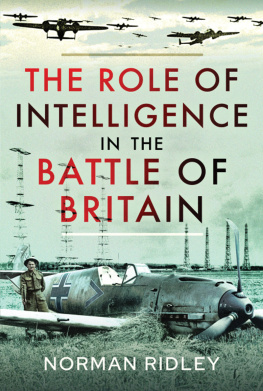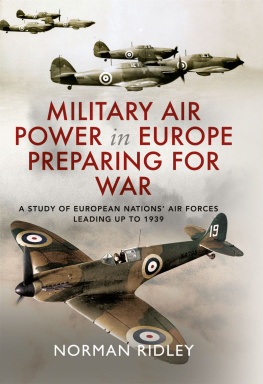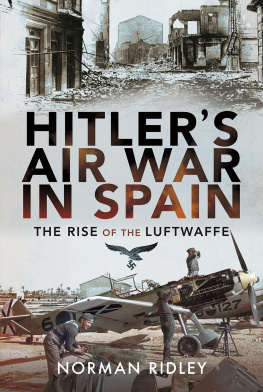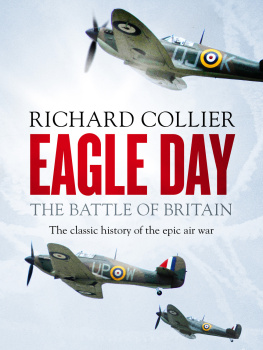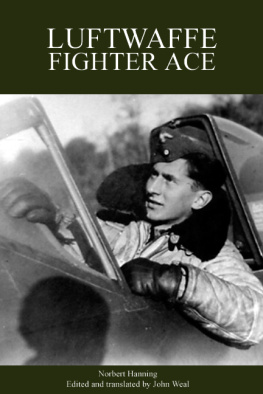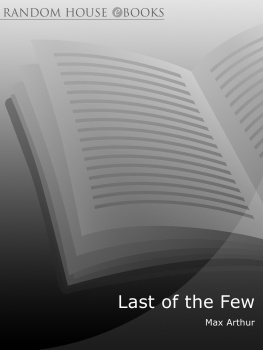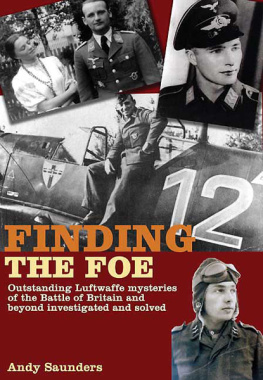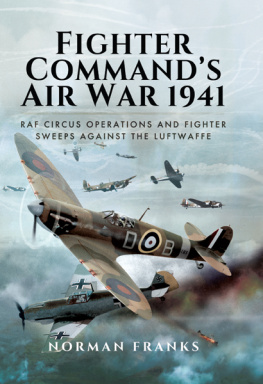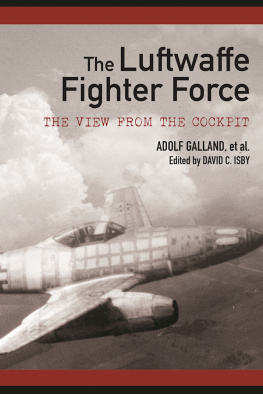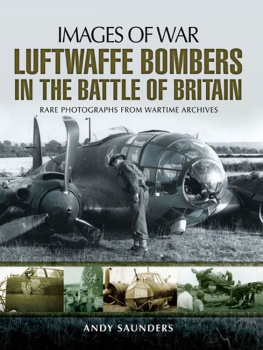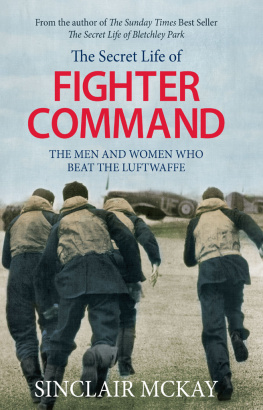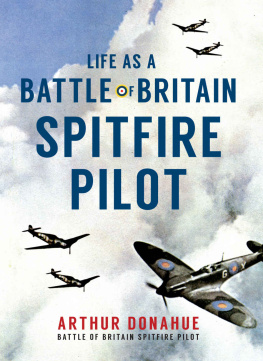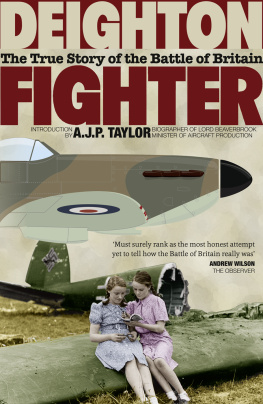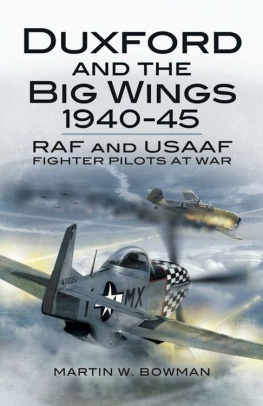Pagebreaks of the print version

THE ROLE OF INTELLIGENCE IN THE BATTLE OF BRITAIN
All the business of war, and indeed all the business of life, is to endeavour to find out what you dont know by what you do; thats what I called guess what was at the other side of the hill.
Duke of Wellington
THE ROLE OF INTELLIGENCE IN THE BATTLE OF BRITAIN
NORMAN RIDLEY
THE ROLE OF INTELLIGENCE IN THE BATTLE OF BRITAIN
First published in Great Britain in 2021 by
Air World
An imprint of
Pen & Sword Books Ltd
Yorkshire Philadelphia
Copyright Norman Ridley, 2021
ISBN 978 1 39901 038 2
eISBN 978 1 39901 039 9
The right of Norman Ridley to be identified as Author of this work has been asserted by him in accordance with the Copyright, Designs and Patents Act 1988.
A CIP catalogue record for this book is available from the British Library.
All rights reserved. No part of this book may be reproduced or transmitted in any form or by any means, electronic or mechanical including photocopying, recording or by any information storage and retrieval system, without permission from the Publisher in writing.
Pen & Sword Books Limited incorporates the imprints of Atlas, Archaeology, Aviation, Discovery, Family History, Fiction, History, Maritime, Military, Military Classics, Politics, Select, Transport, True Crime, Air World, Frontline Publishing, Leo Cooper, Remember When, Seaforth Publishing, The Praetorian Press, Wharncliffe Local History, Wharncliffe Transport, Wharncliffe True Crime and White Owl.
For a complete list of Pen & Sword titles please contact
PEN & SWORD BOOKS LIMITED
47 Church Street, Barnsley, South Yorkshire, S70 2AS, England
E-mail:
Website: www.pen-and-sword.co.uk
Or
PEN AND SWORD BOOKS
1950 Lawrence Rd, Havertown, PA 19083, USA
E-mail:
Website: www.penandswordbooks.com
Preamble
Professor F.H. Hinsley, in his book British Intelligence in the Second World War , described intelligence as an activity which consists, essentially, of three functions. Information has to be acquired; it has to be analysed and interpreted; and it has to be put into the hands of those who can use it. These criteria are applied here to examine the way in which both British and German Intelligence played a part in the Battle of Britain.
Both the RAF and the Luftwaffe were hamstrung in their endeavours during the Battle of Britain by poor intelligence. The most egregious Luftwaffe blunder was its failure to appreciate the true nature of Fighter Command operational systems and consequently it made fundamental strategic errors when trying to degrade them. This was compounded by Luftwaffe intelligence chief, Oberst Josef Beppo Schmid, consistently underestimating Fighter Commands capabilities which resonated with Luftwaffe chief Reichsmarschall Grings own prejudices and influenced German decision-making at all stages of the conflict.
Each side had trouble building a picture of the others strengths, having previously failed to acquire detailed intelligence about each others war production capacity. In the case of the Luftwaffe, they had not seriously considered the prospect of an air war over Britain, and in the case of the RAF, they had only belatedly and reluctantly faced up to the reality of war, having for so long tried to avoid it. While the Luftwaffe did have the benefit of rudimentary pre-war aerial surveillance data, it had been unable to update it significantly after the declaration of war in September 1939. British knowledge of German strategic industrial and military assets was even worse, having made no comprehensive pre-war aerial survey of potential targets to inform their bombing operations.
RAF Fighter Command did have an ace in the hole with its radar surveillance systems giving early warnings of Luftwaffe raids, but this was, in the early stages of the conflict at least, less than totally reliable and it was often difficult to interpret the data coming through due to the inexperience of many of its operators. British radio-monitoring stations laboriously probed Luftwaffe communications looking for the tiniest snippets of intelligence, with which it painstakingly built up a picture of its foes capabilities and intentions. Vital information about the German Enigma coding machines supplied by Polish Intelligence allowed Bletchley Park analysts to start breaking the German codes, but it was a slow and hugely complicated process which did not really pay significant dividends until much later in the war.
Good intelligence, used correctly, helps a combatant to magnify such advantages as they may have and minimise the debilitating effects of their weaknesses. In this way intelligence acts as a force multiplier, but faulty intelligence, or good intelligence misapplied, has the opposite effect of misdirecting operations. In the case of the Luftwaffe, the degree to which it mishandled intelligence threatened to act as a force diluter, by throwing its campaign into a negative spiral where material and strategic advantages were squandered even at the very moment when victory was within reach. Fighter Command, however, struggling to mount a credible defence found, through exploitation of its own intelligence, a feedback mechanism that allowed them to improve the working of the Dowding System of air defence on a daily basis, and respond quickly to every new strategic initiative rolled out by the Luftwaffe right up to the moment that the British people stood on the precipice beyond which catastrophe loomed.
Introduction
The Battle of Britain was notable for several reasons, not least of which was the role played by intelligence on both sides. During the years immediately preceding the Second World War, both German and British Intelligence was fragmented, disjointed, and lacked focus. Little time or effort had been spent on identifying intelligence priorities since neither side had more than a vague notion of what circumstances might prevail in the event of war, and consequently what aspects of such a conflict might be worthy of detailed investigation. The fighting services on both sides had their own intelligence resources, but these were directed to work within the limited field of their own interests and were given little incentive to share either their sources or information. Intelligence agencies outside their direct control were seen as insecure and dilettante, their work unworthy of serious consideration.
The modern ideas of military Intelligence as a significant instrument of war emerged from First World War experiences in which the military had discovered that assigning a few thousand men to ascertain enemy troop deployments proved more productive than putting them in trenches with rifles. The role of reconnaissance aircraft and the growth of radio communications were fundamental to this development. In all cases, sound intelligence promoted efficient decision-making by recognising an enemys strengths and exposing its weaknesses. This important realisation prompted German military leaders, in the wake of their defeat, to retain an intelligence evaluation capability, albeit in the face of opposition from within. This capability laid the foundation for the whole intelligence regime that grew during the inter-war years.
In Britain, there was a tacit understanding that the Foreign Office was responsible for political intelligence and would advise the government on foreign policy and foreign relations, while the War Office conducted Military Intelligence activities free from civilian interference. status. The gathering and dissemination of Air Intelligence was formalised in 1938, but bureaucratic overload impeded efficient use of raw intelligence coming through the radio intercept station at Cheadle, which was the main investigative source of Luftwaffe Intelligence, by insisting that it go through Air Intelligence Branch for analysis before going out to operational units. By the time war broke out in 1939 such impediments were being removed, but it gave precious little time for an effective, integrated intelligence operation to establish itself.

